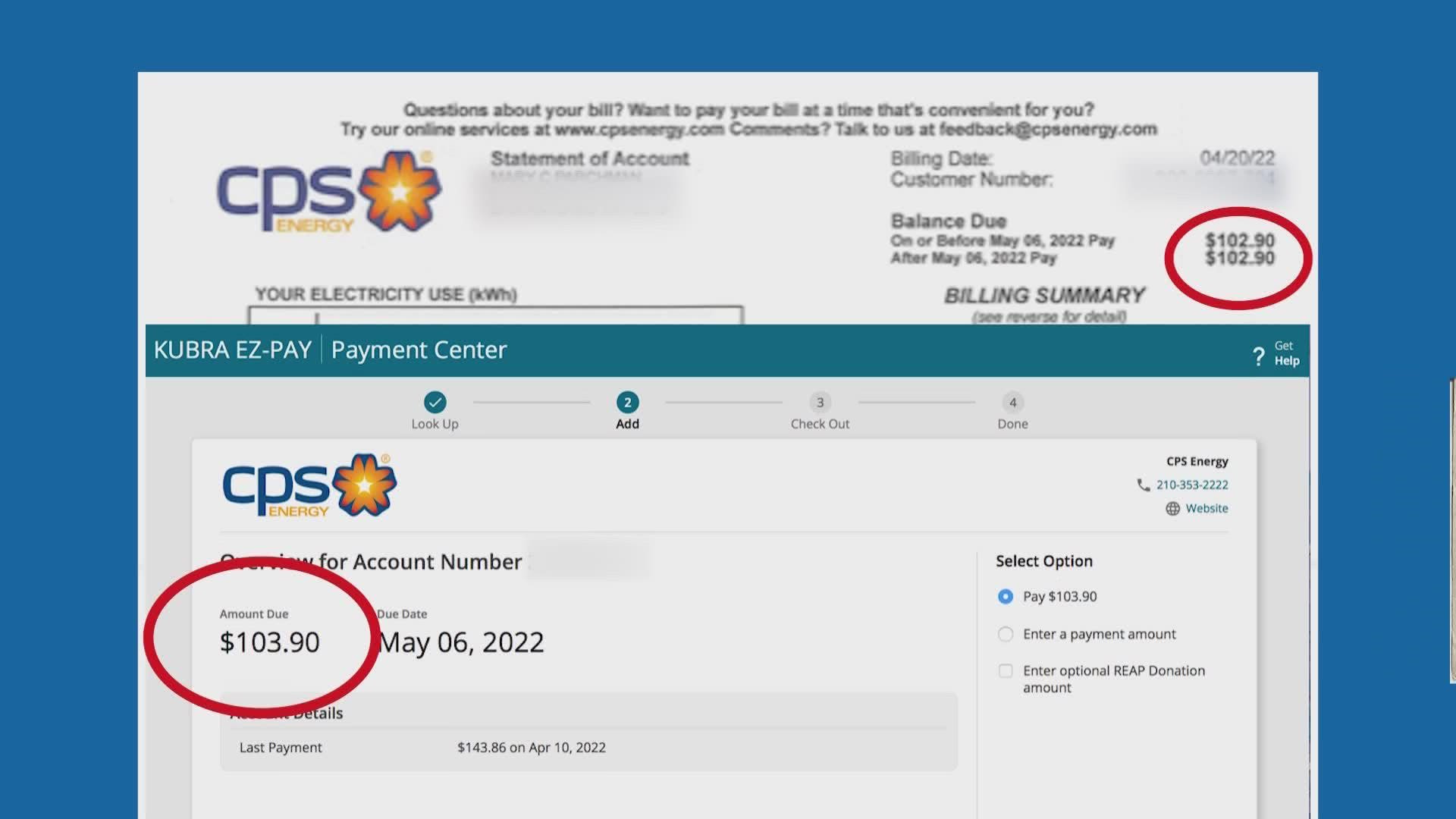SAN ANTONIO — Jeanine Love of San Antonio was surprised when she went to pay her CPS Energy bill online and it was $1 more than the amount on her bill.
“It’s always matched but this time it was $1 more,” she said. “What are you going to do with that dollar?”
Love along with other CPS Energy customers who contacted KENS 5 wanted to know what that $1 charge is for. KENS 5 found out CPS Energy is required by law to charge the fee only to natural gas customers and does not keep it.
“It’s a one-time, once-a-year $1 fee and it’s part of the Texas Railroad Commission's safety and regulatory program,” said Christine Patmon of CPS Energy.
The fee was established by the Texas legislature in 2003. CPS Energy sends between $300,000 to $400,000 a year to the Texas Railroad Commission from the fee. That money is then used for gas pipeline safety measures. The Texas Railroad Commission said that includes inspectors’ salaries, benefits, travel, training, vehicles, rent for field offices, and phones. About 3,500 inspections are done yearly.
CPS Energy customers said they just want to know what to expect when they pay a bill.
“Why don’t they tell people the gas comes with an extra dollar?” Love said. “It should be a separate line item on its own. I mean it’s only a dollar, but times are hard right now and you’re accounting for everything you’re budgeting.”
CPS Energy said it plans to better itemize charges on energy bills in the future. Some of the money from the recent rate increase will go towards upgrading the billing system to make that possible.
“We want to give our customers more information about what’s on their bill but we need that digital transformation project to happen first so we can line item things a little easier because right now we just can’t do it with our current system,” Patmon said.
Yet, do not expect to see changes soon.
“That’s probably somewhere between 3 to 5 years out because right now we’re just getting the project underway,” Patmon said.
So expect an extra $1 charge to continue to pop up on CPS Energy bills annually with no explanation.
In total, across the state, the $1 fee collects about $5.5 million a year.

